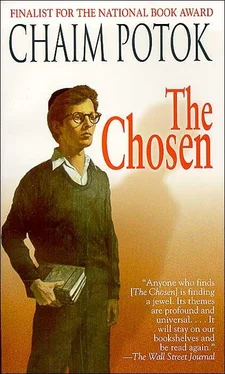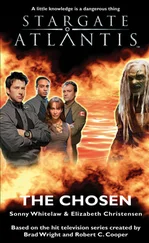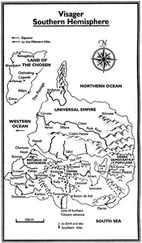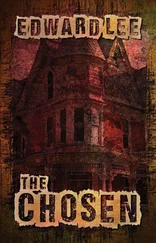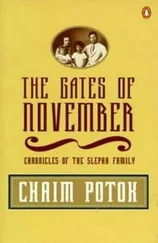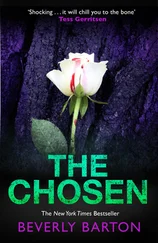'Can we go home now, abba?'
'Of course. We will go home and have a wonderful Shabbat.
I will take your things from the table.' I looked at Mr Savo, who was sitting up on his bed, grinning at us. 'It was wonderful meeting you, Mr Savo.'
'Likewise, kid. Keep the old beanbag away from those baseballs.'
'I hope your eye gets better soon.'
'The eye's out, kid. They had to take it out. It was some clop. Didn't want the little blind kid to know, so kept it quiet.'
I'm awfully sorry to hear that, Mr Savo.'
'Sure, kid. Sure. That's the breaks. Should've been a priest. Lousy racket, boxing. Glad to be out of it. Wouldve been in the war if that guy hadn't clopped me in the head like that years back. Busted up something inside. That's the breaks.'
'Goodbye, Mr Savo.*
'Goodbye, kid. Good luck.'
I went out of the ward with my father, and out of the hospital.
Silence is good everywhere, except in connexion with Tora
– The Zohar
We took a cab and on the way home my father handed me my other pair of glasses with a warning not to read until Dr Syndman told me I could, and I put them on. The world jumped into focus and everything looked suddenly bright and fresh and clean, as it does on an early morning with the sun on the trees, and there was newness everywhere, a feeling that I had been away a long time in a dark place and was now returning home to sunlight.
We lived on the first floor of a three-story brownstone house that stood on a quiet street just off busy Lee Avenue. The brownstone row houses lined both sides of the street, and long, wide, stone stairways led from the sidewalks to the frosted-glass double doors of the entrances. Tall sycamores stood in front of the houses and their leaves threw cool shadows onto the paved ground. There was a gentle breeze and I could hear the leaves moving over my head.
In front of each house was a tiny lawn planted with either morning glories or a hydrangea bush. The hydrangea bush or snowball bush, as we called it – on our lawn glowed in the sunlight, and I stared at it. I had never really paid any attention to it before. Now it seemed suddenly luminous and alive.
We climbed up the wide stone staircase and came through the vestibule into the long hallway where it was dark and cool, and narrow like the corridor of a railroad car. The door to our apartment was at the end of the hallway, below and to the right of the staircase that led to the two stories above us. My father put his key into the lock, and we stepped inside.
I could smell the chicken soup immediately, and I had only taken two or three steps when Manya, our Russian housekeeper, came running out of the kitchen in her long apron, her man-sized shoes, and with strands of dark hair falling across her forehead from the braided bun on the top of her head, scooped me into her huge arms as though I were a leaf, and smothered me with a hug that pushed the air from my lungs and left me breathless. She planted a wet kiss on my forehead, then held me at arm's length and began to babble in Ukrainian. I couldn't understand what she was saying, but I could see her eyes were moist and she was biting her lips to keep from crying. She released me, and I stood there, smiling and catching my breath, while my father talked to her.
'Are you hungry, Reuven?' my father asked me.
'I'm starved,' I said.
'There is lunch on the table. We will eat together. Then you can lie on the porch and rest while I finish typing my article.'
Lunch turned out to be a massive affair, with a thick soup, fresh rye bread, onion rolls, bagels, cream cheese, scrambled eggs, smoked salmon, and chocolate pudding. My father and I ate with· out talking, while Manya hovered over us like a protective bear, and afterwards my father went into his study and I walked slowly through the apartment. I had lived in it all my life, but I never really saw it until I went through it that Friday afternoon.
I came out of the kitchen and stood for a moment staring down at the strip of gray carpet that ran the length of the hall. I turned left and walked slowly along the hall, past the bathroom and the dumb-waiter to my left, past the telephone stand and the pictures of Herzl, Bialik, and Chaim Weizmann that hung from the wall on my right, and into my bedroom. It was a long, somewhat narrow room, with a bed against its right wall, a bookcase along its left wall, two closets near the door, and a desk and chair set a bit away from the wall facing the door. To the left of the desk, along the bookcase wall, was a window that looked out onto the alleyway and back yard beyond. The room had been cleaned, the bed carefully made and covered with its green-and-brown spread, and on the desk were my school books arranged in a neat pile. Someone had brought them home for me after the ball game, and there they were, on the desk, as though I had never been away.
I went over to the window and stared out at the alleyway. I could see a cat lying in the shade of our wall, and beyond was the grass of our back lawn and the ailanthus tree with the sun on its leaves. I turned, sat down on the window seat, and stared at the New York Times war maps I had put on the wall over my bed. There were maps of the North African, Sicilian, and Italian campaigns, and now I would have to add a map of Europe, too. Over the maps was the large picture of Franklin Delano Roosevelt I had cut out of a New York Times Sunday magazine section, and next to it was the picture of Albert Einstein I had taken years ago from an issue of Junior Scholastic. I looked at my desk. My pens and pencils were neatly tucked into the holder alongside my lamp, and on top of a pile of papers was the recent issue of the WQXR Bulletin. I remembered I had wanted to listen to a Tchaikovsky symphony on Sunday night, the night of the ball game which I had been so certain we would win.
At the head of the bed was the door that led to my father's study. The door was dosed, and I could hear my father working at his typewriter inside. There was no way to get to the living room except through the study, and I walked around behind my desk, opened the door, stepped inside, and dosed it quietly behind me.
My father's study was the same size as my room, but it had no windows. The wall alongside the door was lined with floor-to ceiling bookcases. Along the opposite wall were curtained French doors bounded by two large Ionic columns. What was left of that wall was also covered with bookcases, as was the wall adjoining it to the right. My father's desk stood near the outside wall of the house, in almost the exact position where I had asked to have my own desk placed. But it was a good deal larger than mine, with dark, polished wood, deep drawers, and a large, green, leatherbordered blotter that covered almost its entire top. It was strewn with papers now, and my father was working intently over his old Underwood typewriter. The study was the darkest room in the apartment because it had no windows, and my father always worked with the desk lamp on, the yellow light bathing the desk and the floor around it. He sat there now, wearing his small, black skullcap and pecking at the typewriter with his index fingers, a thin, frail man in his fifties, with gray hair, gaunt cheeks, and spectacles. I looked at him and suddenly realized that he hadn't coughed once since he had come to take me from the hospital. He glanced up at me for a moment, frowned, then went back to his work. He didn't like me to disturb him while he was at his desk and I went quietly through the study, walking on the gray rug that covered the floor, then through the French doors into the living room.
Sunlight poured through the three wide windows that faced the street and spread gold across the gray rug, the French-style sofa, chairs and end tables, the polished, glass-topped coffee table, and along the white walls. I stood near the sofa for a moment, blinking my eyes which always hurt a little whenever I came from the darkness of my father's study into the brightness of our living room.
Читать дальше
